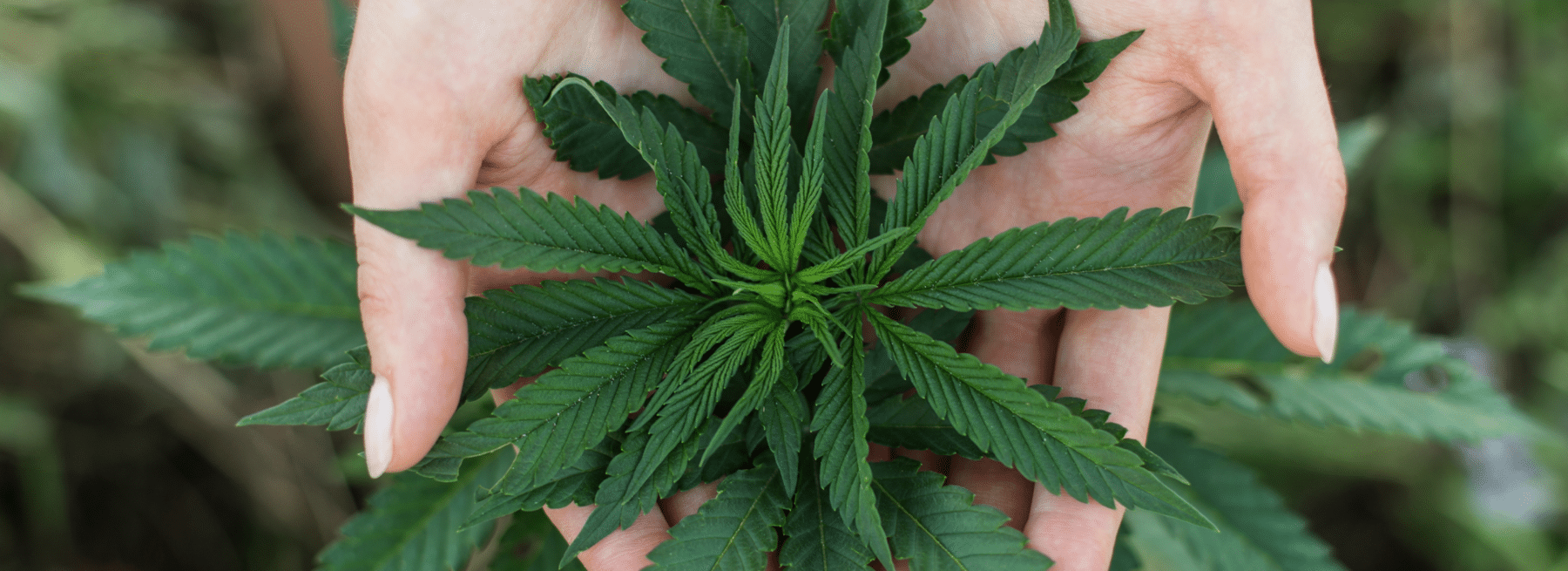While cannabis security regulations vary based on location, the industry can learn from each other. Missouri has been in the medical marijuana business for three years. It started strong as criminal activity was minimal. Then, things recently changed as criminals burglarized some facilities while others contended with shoplifting.
How Crime Affects Missouri Cannabis Businesses
Greenway reports on a string of burglaries at cannabis dispensaries around St. Louis. In one incident, someone threw a large rock at the dispensary’s front glass. In another, crooks drove their vehicle into one of the dispensaries. “For dispensaries and other medical marijuana facilities, security experts say the key is prevention and an honest assessment of their current vulnerabilities,” the authors write.
Part of the reason cannabis businesses are being hit is that the marijuana business is a cash-heavy one. Unfortunately, intruders are becoming more brazen. Like the St. Louis dispensary, they’ve rammed their vehicles into the cannabis dispensaries. The damage goes beyond stolen products and damaged property. It often causes the facility to shut down operations for repairs and investigation.
Missouri law requires every cannabis facility to have a security manager. Their job is to secure the facility. It’s a good idea for all dispensaries to have one. It does not have to be a full-time role.
The problems extend outside of Missouri state lines. In Oakland, 25 cannabis businesses have been burglarized in two weeks. a Forbes article says these burglaries have resulted in $5 million in damage.
Other Challenges for Cannabis Businesses
The constantly changing regulations add to the many challenges that marijuana dispensaries face. While the legalization of cannabis helps fight black market activities, they remain a big issue that reinforces the need for strong cannabis security. Illegal businesses go after legal cannabis dispensaries to support their unlawful activities.
These businesses steal or stock up on marijuana and transport it across state lines where cannabis has not been legalized or it’s only approved for medical use. Additionally, most regulations have strict requirements when it comes to cannabis security.
This is why cannabis security is crucial. Running a successful business demands taking steps to protect assets. To help you stay compliant, review these five cannabis security tips. They can help reduce your risk while improving your ability to be compliant.
1. Get Expert Support on Cannabis-Related Laws
Cannabis regulations are complex, ever-changing, and strict. That’s why one of the first things to do to fortify cannabis security is to work with a lawyer who knows the industry in the location where you conduct business. The lawyer will help you understand the laws that affect cannabis businesses and ensure your business is compliant.
As previously mentioned, laws vary based on location. Both the U.S. and Canada have comprehensive requirements for cannabis security that include security cameras. Rules affecting cannabis dispensaries in the U.S. not only vary by state but also by municipality. In Canada, laws vary by province.
In some areas, security may not be limited to the perimeter around the property. Colorado, for example, has a requirement that vehicles delivering cannabis products must have video-monitored lockboxes.
The industry also deals with constantly changing laws. Lawmakers won’t know the outcome of a law until after it passes. Once they see the outcomes of the law, they revise them. This makes it harder for police officers to stay on top of cannabis-related laws.
Law enforcement has to know all the laws. Because of this, they may not bother driving by cannabis businesses. They tend to put a higher priority on protecting citizens and maintaining public safety. That said, they may spend more time monitoring the roads for people who are under the influence of drugs or alcohol than shopping for it.
Therefore, when it comes to security, marijuana companies are on their own. Hiring the right lawyer who knows the laws in your location will be key.
2. Document a Cannabis Security Plan
The first step to creating a cannabis security plan is to do a security risk assessment to determine the risks. The outcome of the assessment helps you identify what your business has in place and what’s needed. This information will inform the cannabis security plan.
If you’ve hired a lawyer who knows the cannabis laws, they will be a good resource for the cannabis security plan. Involve them in the creation of the cannabis security plan. You’ll also want to bring in a security company that has experience in working with cannabis-related businesses.
A cannabis security plan is a living document. This means it’s never final. Remember the regulations keep changing. The security plan needs to be updated and reflect your current security status. The security plan takes time to create and it’s worth it because it will help increase your chances of being in compliance and deterring crime.
3. Take Internal Measures
Where cannabis security is concerned, one of the bigger threats is the dispensary’s own employees as reported by The Cannabis Business Times. They know the business’s policies, such as overages as well as security weaknesses. Internal theft is most likely underreported. Many cannabis businesses fear that reporting theft will raise compliance issues.
According to MJ Biz Daily, 90% of the loss of products in the cannabis industry is due to employee theft. Employees may pocket a few dollars here and there or they may give discounts to friends and customers. Stores allow slight overages for weighing products. Employees may weigh the product and then steal the overages.
To reduce the risk of internal theft, it is absolutely imperative for employees to go through security and then sign off on the security plan. Signing off on the security plan holds them accountable for security. They can’t use the “I didn’t know” excuse.
The more they know about security, the less likely they will be to commit theft. The reason is that when they know there are cameras everywhere, they won’t be as compelled to try to steal. All employees must undergo refresher security training at least once a year. And they need to sign off on the security plan.
Before officially hiring a new employee, do a background check on them. Many companies do this as a standard operating procedure just like with drug testing. It’s not a sign of distrust. Consider setting up rotating shifts as a way to lower risk of internal theft. This makes make it harder for coworkers to collaborate and plan something.
4. Invest in a Cannabis Inventory Management System
Your most valuable asset is your inventory. That’s why investing in an inventory management system is a smart move. Conduct a review of your inventory several times a day, especially during shift changes.
Try to limit how much inventory you house on the property and who has access to it. It would be worth looking into adding an access control system. This lets you manage who has access to specific areas of the building and the inventory. Also, do what you can to minimize the amount of cash you keep onsite.
5. Add Remote Video Surveillance for Cannabis Security
One of the things many cannabis laws tend to require is remote video surveillance. The specific requirements are different by location. These laws cover the most minutiae detail including requirements for security camera placement, frame rate and resolution, and how long to retain video recordings. The longer you need to retain footage and the higher the video resolution, the more storage space you will need.
Another must-have with video surveillance is a backup plan for power outages and potential problems. The last thing you need is for the cameras to break before a crime take place. A company that has experience in implementing cannabis security will most likely have a system health check in its services. These checks occur on a regular basis to verify everything works properly or identify a problem to fix. Many of these can be fixed without stepping foot in your business.
How to Choose the Right Cannabis Security
Many cannabis businesses fail compliance in the area of security. Due to the nature of the marijuana laws, security experts strongly recommend partnering with a security company with cannabis industry experience in choosing, installing, and upkeeping video surveillance systems.
Hiring the right company matters a lot. They can save you money because they can set up the video surveillance system correctly on the first try. Something you might consider is asking the security vendor about adding an installation guarantee clause. This may protect you when something goes wrong, or the system fails compliance.
“When it comes to securing your cannabis facility, compliance is key,” writes Steve Birkmeier in How video surveillance can keep an eye on your supply. “Not all security consultants are the same, in fact, many of these professionals lack experience in the cannabis industry which is highly regulated and varies state-by-state. It is strongly recommended to work with a consultant and/or systems integrator who has experience doing design-build work in the cannabis sector in your specific state. These professionals understand the unique requirements, pitfalls and caveats and more importantly, they are more likely to work with security product manufacturers that cater to your needs.”
Birkmeier recommends finding technology that can manage access control, video, video verification, and intrusion within a single system. The data needs to have a timestamp for later referencing. The more efficient systems pair video analytics with trained monitoring operators. Video analytics watches for any one of its many scenarios. Once it identifies a potential scenario, it can alert the on-call monitoring operators.
Apply these five ways to help ensure your cannabis security protects your business, your expensive and sought-after assets, and your employees. As you seek qualified cannabis security providers with experience in the industry, ask for client referrals and cannabis case studies.
Stealth Monitoring can provide all of these as a part of its cannabis security services. The company has experience in working with cannabis dispensaries in the U.S. and Canada. For more information on effective cannabis security technologies solutions that comply with regulations, pick up this cannabis security guide.

